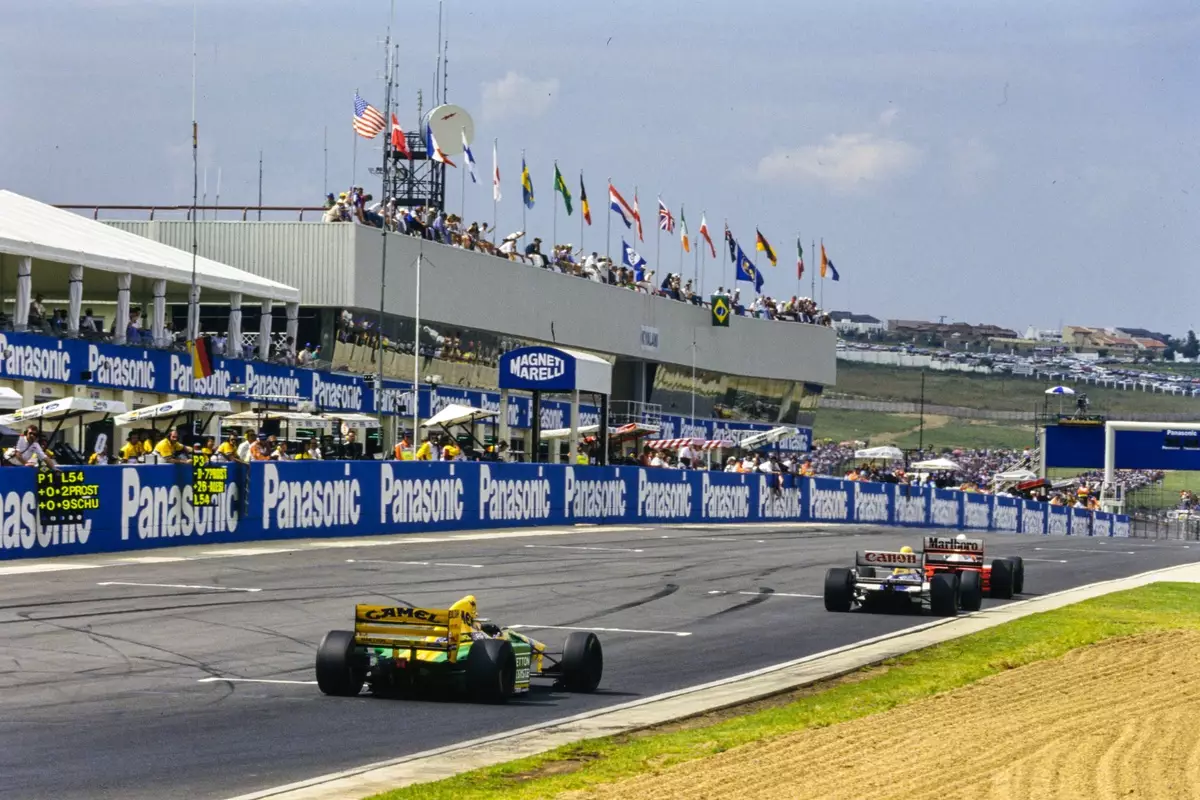South Africa, a nation renowned for its diverse landscapes and rich cultural heritage, is making strides to reintegrate into the Formula 1 racing calendar after a considerable absence. With the recent extension of the deadline for submitting bids to host the illustrious Grand Prix, the government is showing renewed determination to make this dream a reality.
The history of Formula 1 in South Africa is storied yet inconsistent. The Kyalami Circuit last hosted F1 races in 1993, marking a significant departure from the country’s involvement in the sport that had flourished in preceding decades. When the bid to bring the Grand Prix back to Kyalami fell through in 2023, it raised concerns about South Africa’s viability as a host for major international sporting events. However, the government’s decision to extend the submission deadline provides a glimmer of hope.
This time, the Ministry of Sport, Arts, and Culture has established a Bid Steering Committee specifically dedicated to reviving the South African Grand Prix. The delay in the bid submission deadline signifies a commitment to meticulous planning, ensuring potential bidders can present well-structured proposals. The government clearly understands that a strategic approach is fundamental for creating a sustainable F1 event that can contribute to the national economy and enhance tourism.
The two primary contenders for hosting the Grand Prix are the Kyalami Circuit and a proposed street circuit in Cape Town. The former has undergone renovations to meet the FIA’s Grade 1 standards, essential for hosting Formula 1 events. This longstanding track holds nostalgic value for fans and is appealing for its potential to resurge as a central figure in the motorsport landscape of the country.
Conversely, the Cape Town Grand Prix SA is looking to establish a 5.7-kilometer street circuit that cruises around the picturesque waterfront and the DHL Stadium. This modern alternative comes on the heels of a successful one-off Formula E race in the area, indicating a burgeoning interest in electric and traditional motorsport in a region that could become a focal point for the industry. Additionally, the possibility of a purpose-built circuit on the outskirts of Cape Town remains a viable option.
Recently, sports minister Gayton McKenzie has been vocal about the economic and social benefits of hosting a Formula 1 event, emphasizing the potential for boosting tourism and showcasing South Africa on a global stage. His discussions with F1’s CEO, Stefano Domenicali, and the assertion that “the race is going to happen” reflect an unwavering optimism. The extension until March 2025 for the submission of bids is a strategic maneuver to ensure that stakeholders can formulate comprehensive bids to align with the Request for Expression of Interest requirements.
However, the government also acknowledges the ambitious nature of the timeline. With expectations set for a return no earlier than 2027 – given that the 2026 calendar is already fully booked – this may pose challenges. This aspiration, while bold, presents a risk; without adequate preparation and funding, the dream could falter once again.
The race for hosting Formula 1 events isn’t solely limited to South Africa. Other African nations, such as Rwanda, have submitted bids, while the sport eyes expansion into Asia with contenders like Thailand and South Korea. The competition underscores the necessity for South Africa to distinguish itself with a unique offering, both in terms of infrastructure and an engaging spectator experience.
Overall, while the road to revitalizing Formula 1 in South Africa is laden with challenges, the current initiatives reflect a growing ambition. The government, sports officials, and potential bidders must collaborate effectively to transform these aspirations into reality. This renewed interest could not only change the motorsport landscape in South Africa but also establish it as a desirable destination for global sporting events, setting a precedent for the future of motorsports in Africa.


Leave a Reply